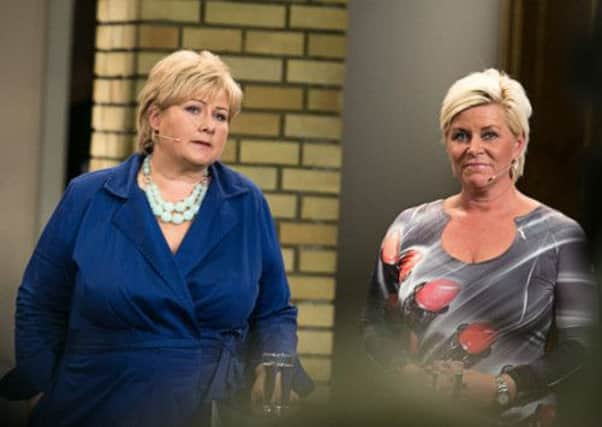Norway: Breivik party to take government role


Progress – which once counted among its members Anders Behring Breivik, who killed 77 people in 2011 in an attack targeting Labour – came third in Monday’s poll, giving it a kingmaker role in coalition-building.
The Conservatives, led by Erna Solberg, won the most seats but cannot form a majority government without Progress, and may have to make concessions to it on spending, taxes and immigration – but without alienating two smaller centrist parties.
Advertisement
Hide AdAdvertisement
Hide AdProgress leader Siv Jensen said: “We will ensure a solid footprint in a new government and if we are going to have good solutions, all four parties must have a place, all must be visible.”
Progress wants to spend more of Norway’s oil wealth and curb immigration. Although it has toned down its rhetoric to court respectability, some still see it as too radical for government.
Ms Solberg promised to cut taxes, shrink government and improve health care, but acknowledged she would have to make policy concessions.
“We will all have to give and take to get a policy stance that has a firm direction and will last over time,” Ms Solberg, 52, said after results showed a landslide victory over Labour prime minister Jens Stoltenberg.
“All three [other parties] will be tough negotiators in issues close to their hearts,” she said.
With nearly all of the vote counted, the Conservatives, Progress and two centrist parties collected 96 seats in parliament, 11 more than needed for the majority. However, Progress’ share of the vote actually fell – it won 29 seats, 12 fewer than four years ago, losing votes as Norwegians shunned the extremes of the left and right. Mr Stoltenberg and his allies gained just 72 seats and the prime minister announced he would step down.
Norway has enjoyed economic success during the past decade, mostly escaping Europe’s economic crisis as its booming offshore oil sector lifted per capita GDP to the equivalent of about £63,000 and a huge public sector insulated the economy.
But growth is now slowing, competitiveness is stagnating, and the government’s record on critical social services is mixed.
Advertisement
Hide AdAdvertisement
Hide AdThe trickiest task for Ms Solberg will be to tame Progress, and woo at least one of the two centrist parties that are not keen on working with it.
The Christian Democrats and Liberals, one of whom will be needed for a majority, would not commit to joining the cabinet but said they would ensure the centre-right came to power.
Christian Democrat leader Knut Arild Hareide said: “We and [Liberal party chief] Trine Skei Grande have got a key role for the next four years. We are ready to put a new government in place.”
Hanne Skartveit, political editor at the newspaper VG, said she thinks a four-party coalition is possible. She said Progress has softened its anti-immigrant stance “immensely” in recent years and is not an “extreme anti-immigrant party as we know them from the rest of Europe”.
Analysts said the price of gaining the small parties’ support could include giving up plans to drill for oil in Lofoten, a picturesque Arctic archipelago. Energy firms have argued there is a need to drill and the big parties supported their quest, while the smaller parties opposed it.
However, while Ms Solberg may have to make concessions to Progress, any shift in policy is likely to be mild, analysts said.
In immigration, Norway’s hands are tied by international treaties. Also, unemployment is less than 3 per cent and a steady influx of migrants keeps the labour market from overheating.
The next government will have more leeway on spending, as it levies a 78 per cent tax on the oil sector, amassing huge budget surpluses and a $750 billion oil fund.